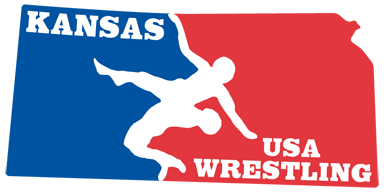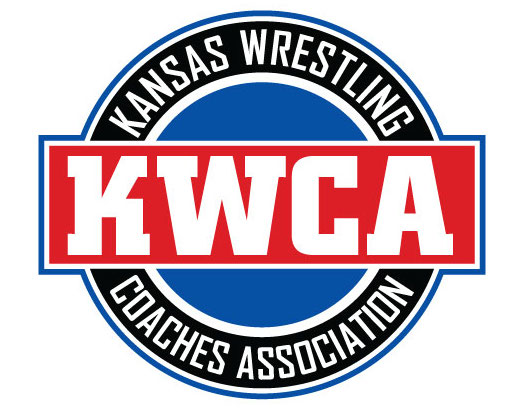This is one discussion that I really wish did not have to happen. The idea that a young boy or girl should spend all year training and competing with a eye towards taking a shot at qualifying for the state tournament, only to have that dream shot down because of errors by the adults that should be looking out for him/her, disappoints me greatly. Unfortunately, all too often I end up being one of the people who are responsible for enforcing the rules saying “no” in these cases, when every fiber of my being wants to say “yes.”
If your son or daughter is not going to be wrestling this weekend because of one of these rules, I know that there is nothing that I can say which would mitigate any of the hurt that your family is currently feeling. However, for those of you who are wondering why a bunch of adults can’t see past a few rules to do the right thing for a young athlete, I would like to try and explain why these rules exist and why they are enforced so stringently.
Perhaps the best place to start is to confess my own sin and the resulting damage. Approximately 15 years ago, when I was the District II director, I received a request the day before the subdistrict tournament that seemed to be an easy call. A wrestler had been entered into a wrong weight class, due to an error by his club director, and wanted to be moved into the correct weight class. There was an outside shot that he could make weight in the bracket he was entered, but he had hit a growth spurt and making the lower weight, if even possible, was going to be extremely difficult. The weight class he wanted to be moved into only had one or two other wrestlers, so it wasn’t going to affect anyone’s ability to advance to the next week’s district tournament. I talked to the club director of one of the other kids in the bracket he wanted to move to and this director had no objection. Therefore, I allowed him to move to the other bracket. It seemed the perfect scenario, with no one being harmed and this young man being allowed to compete.
The next week I was faced with an appeal by a club from the other subdistrict. When they arrived at the district tournament, they found one of their wrestlers was facing this young man who changed weight classes the prior week. Somehow they knew that his weight had been changed, and they challenged my authority to make this change. Clearly they were concerned that this young man was going to affect their chances to qualify for state and they wanted him out of the bracket. Any hurt that I might have felt in denying him the chance to move to his correct weight class the prior week paled in comparison to the sorrow that I felt when I realized that I had no defense for my actions. Because the rules did not allow this change, the only recourse was to scratch this wrestler from the district tournament, ending his season because I decided I knew better than the rules did.
This incident has had a lasting impact on me. My initial reaction was to question whether the rules that we had were necessary and, more importantly, were they fair? The problem that I quickly realized as I considered how these rules should be revised or deleted was that very little happens in a vacuum. Take for instance the impact of a wrestler who is entered in the wrong age group. Our rules state that a wrestler may not wrestle outside of his/her own age group, so if this error is not corrected before the start of the seeding meeting s/he will not be able to wrestle in the subdistrict tournament. It would seem to be easy to just make the right decision and move this wrestler to the correct age group, but where should the wrestler be put on the bracket? The reason for seeding wrestlers is to try and ensure that the top four wrestlers have a fair chance to place at the subdistrict tournament by not making them wrestle each other out of medal contention. Of course they still have to win the matches that the seeds anticipate they will win, and a nonseeded wrestler has every opportunity to defeat a seeded wrestler and earn that qualifying spot, but the goal is still the same. If my wrestler is (on paper) the third best wrestler in this original bracket, and if the new wrestler is the best wrestler in the bracket, it is very possible that drawing the new wrestler in the bracket may force my wrestler to have to defeat two higher seeds just to make it to district while the #4 seed gets to avoid these competitors. Since my wrestler was seeded higher than the #4 seed, why should he be penalized because this other wrestler did not enter the correct age group and subsequently was moved into my wrestler’s bracket?
An option would be to reseed the bracket, but this is also problematic. There is a reason that this is the only Kansas youth tournament where all of the participating clubs come together to argue over seeds. Because of the time and distances involved, and the discussions that are necessary to try and do the job right, this is not a minor task. It would be difficult enough just to get all of the clubs back together that are currently represented in the two modified brackets to do a complete reseeding, but this ignores the “what if” potential. For example, what if I had known that a certain wrestler was not going to be in a certain bracket? Potentially, I might have moved my wrestler into that weight class – why should I be denied this opportunity after the fact if the state is allowing changes? I can come up with several other “what if” scenarios, but you get the idea.
The bottom line is that there are very few actions that we can take that do not impact someone else in a disadvantageous fashion. Since these other individuals followed all of the rules, it seems unfair to put them in the position of trying to obtain their own remedies to any harm resulting from changes.
One rule that I do believe should be reviewed is the ten day rule for accepting subdistrict entries. Initially this was felt to be necessary to provide the subdistrict host a fair opportunity to prepare themselves for the seeding meeting. With the adoption of TrackWrestling and the simplification of putting together the participation reports due to the online entries by member clubs, I think it might be possible to reduce this time period. However, I believe there will still need to be a deadline and there will still be those individuals who are harmed when they miss these deadlines. And I will continue to agonize over those youth who must pay the price.







